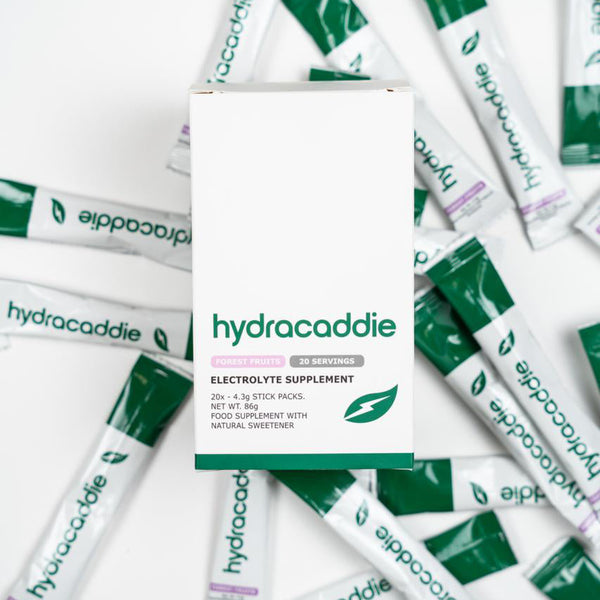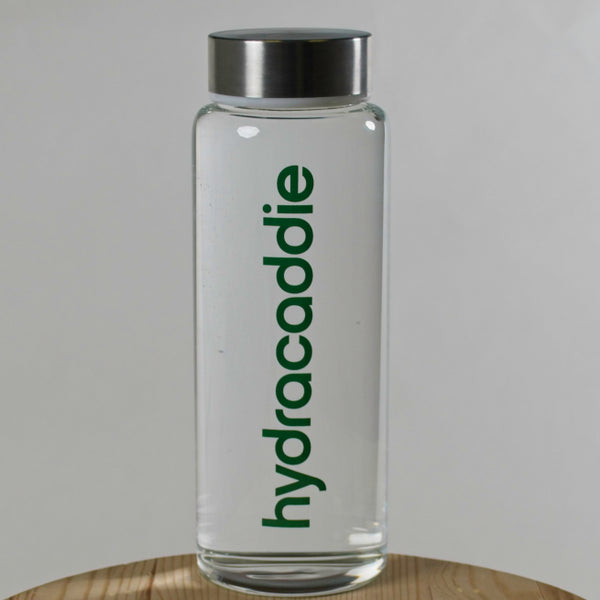The Effects of Dehydration On Distance, Accuracy, and Decision Making
How Mild Dehydration Affects Your Golf Game: Insights from Research
If you’ve ever felt a bit off your game after a long day on the course, it might not just be the heat or stress—dehydration could be at play. A 2012 study titled "Effect of Acute Mild Dehydration on Cognitive-Motor Performance in Golf" by Smith, Newell, and Baker, published in the Journal of Strength and Conditioning Research, sheds light on how even mild dehydration can impact your golf performance. Let’s break down what the study found and how hydration can affect your swing, focus, and overall game.
What the Study Looked At
The research aimed to determine the effects of mild dehydration (about 2% body mass loss) on cognitive and motor performance in golfers. In other words, the researchers wanted to see how even a slight reduction in hydration levels could influence things like reaction time, decision-making, and motor skills during a golf round.
To assess this, participants were put through a series of golf-related tasks, and their performance was measured before and after inducing mild dehydration. The study focused on both cognitive and motor performance, acknowledging that golf requires a unique combination of brainpower (focus, strategy, and decision-making) and physical skill (accuracy, coordination, and control).
Key Findings: How Dehydration Impacts Your Golf Performance
Slower Reaction Times: The study found that mild dehydration led to slower reaction times during golf tasks. This might sound minor, but when you're on the green, even small delays in decision-making can affect your ability to react to changing conditions, adjust your swing, or even read the greens properly.
Decreased Accuracy: In addition to slower reaction times, participants showed a decline in accuracy during tasks related to golf, like putting and hitting targets. Dehydration can impair your coordination and precision, both of which are key when trying to sink a putt or make a precise shot.
Impaired Cognitive Performance: Golf isn’t just about hitting the ball—there’s a lot of strategy involved. The study showed that dehydration negatively impacted cognitive tasks, such as decision-making and focus. When you’re dehydrated, your brain doesn’t function at its best, making it harder to stay sharp and make optimal decisions about shot selection and course strategy.
Why Does This Matter for Golfers?
For golfers, performance is a blend of physical skill and mental focus. Every shot requires precision, concentration, and the ability to quickly assess changing conditions on the course. This study emphasises that even a mild state of dehydration—something that can easily happen on a warm day or during a long round—can affect both the physical and mental aspects of your game.
Whether you’re a weekend warrior or a seasoned pro, dehydration can have significant effects on your ability to perform at your best. Slower reaction times, reduced accuracy, and impaired focus can all contribute to missed shots and lower overall scores.
Hydration Tips for Golfers
To avoid the performance decline associated with dehydration, here are some practical hydration tips:
Drink Water Consistently: It's not just about taking water when you feel thirsty. Stay hydrated throughout the day, and sip water consistently before and during your round.
Electrolyte Replenishment: Along with water, consider incorporating electrolyte drinks (ideally sugar free) into your hydration routine. Electrolytes like sodium and potassium help your body maintain fluid balance and prevent dehydration-related performance dips.
Avoid Over-reliance on Caffeine: While caffeine can give you a temporary energy boost, it can also lead to dehydration, especially when consumed in excess. If you’re drinking coffee or energy drinks before your round, balance them with water to stay hydrated.
Monitor Your Hydration Status: If you’re playing in the heat or engaging in long rounds, pay attention to signs of dehydration such as dry mouth, dizziness, or feeling sluggish. These can indicate you need more fluids.
Conclusion: Stay Hydrated, Play Your Best
The findings from the study underscore the importance of staying hydrated, even when the dehydration is mild. For golfers, maintaining hydration isn’t just about avoiding thirst. It’s about ensuring your mind and body perform at their best. Dehydration can slow reaction times, reduce accuracy, and hinder cognitive performance, all of which can impact your game.
By staying on top of your hydration—drinking water regularly, incorporating electrolytes and being mindful of environmental factors like heat—you can keep your body and mind sharp, ensuring that you perform at your best on the course. So next time you're gearing up for a round of golf, make sure you're not just focused on your swing but also on your hydration!



